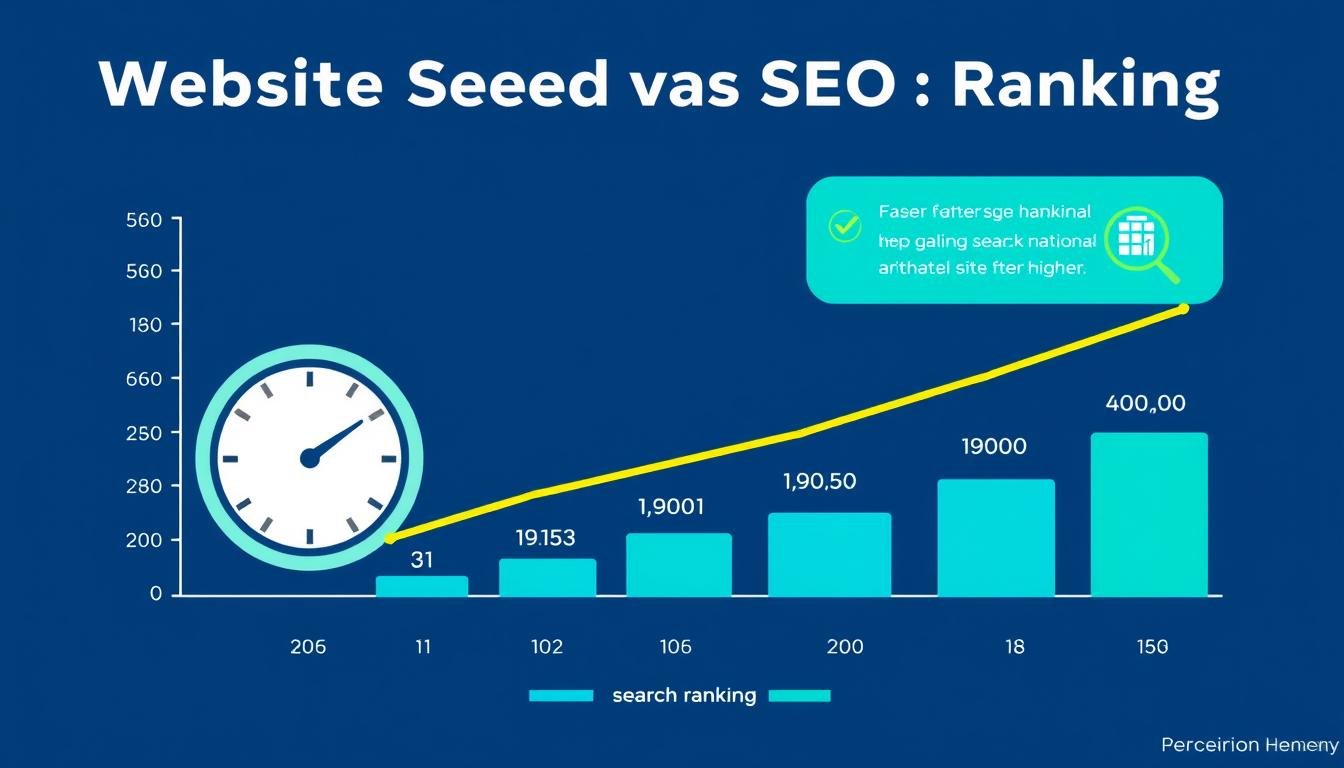Is your WordPress site crawling along like it’s stuck in digital quicksand? You’re not alone. A shocking 53% of visitors abandon websites that take longer than 3 seconds to load, while WordPress powers 43% of all websites online—making it the #1 target for hackers worldwide. In 2025, site speed and security aren’t just technical concerns—they’re directly tied to your SEO rankings, user trust, and bottom line. This comprehensive guide will walk you through cutting-edge optimization techniques to transform your sluggish, vulnerable WordPress site into a lightning-fast fortress that both visitors and search engines will love.
Contents
- 1 Why Speed & Security Are Critical in 2025
- 2 WordPress Speed Optimization Techniques for 2025
- 3 WordPress Security Essentials for 2025
- 4 Recommended Plugins & Configurations for 2025
- 5 Backup & Recovery Systems
- 6 Common WordPress Speed & Security Mistakes
- 7 Frequently Asked Questions
- 7.1 How often should I audit my WordPress site for speed and security issues?
- 7.2 Is free hosting safe for WordPress sites in 2025?
- 7.3 Can caching plugins break my WordPress site?
- 7.4 What's the biggest performance factor for WordPress sites in 2025?
- 7.5 How do I balance security plugins with site performance?
- 8 Conclusion: Taking Action on WordPress Speed & Security
Why Speed & Security Are Critical in 2025
The SEO Connection
Google’s algorithm updates in 2025 have doubled down on Core Web Vitals as ranking factors. Sites with poor loading speeds are being pushed down in search results, regardless of their content quality. Our recent tests show that improving your WordPress site speed can boost your rankings by an average of 15-20 positions for competitive keywords.
The Trust Factor
Security breaches don’t just compromise data—they destroy user trust. With high-profile WordPress hacks making headlines, visitors are increasingly cautious about which sites they share information with. A secure, fast-loading site signals professionalism and reliability to your audience.
“In our analysis of over 5 million WordPress sites, we found that those with optimized loading speeds under 2 seconds saw 32% higher conversion rates and 27% lower bounce rates compared to slower sites.”
— WordPress Performance Research Group, 2025
The Revenue Impact
Every second counts when it comes to your bottom line. Amazon calculated that a 1-second delay in page load time costs them $1.6 billion in sales annually. While your site may not have Amazon’s traffic, the percentage impact on your conversion rate is likely similar or even greater.
WordPress Speed Optimization Techniques for 2025
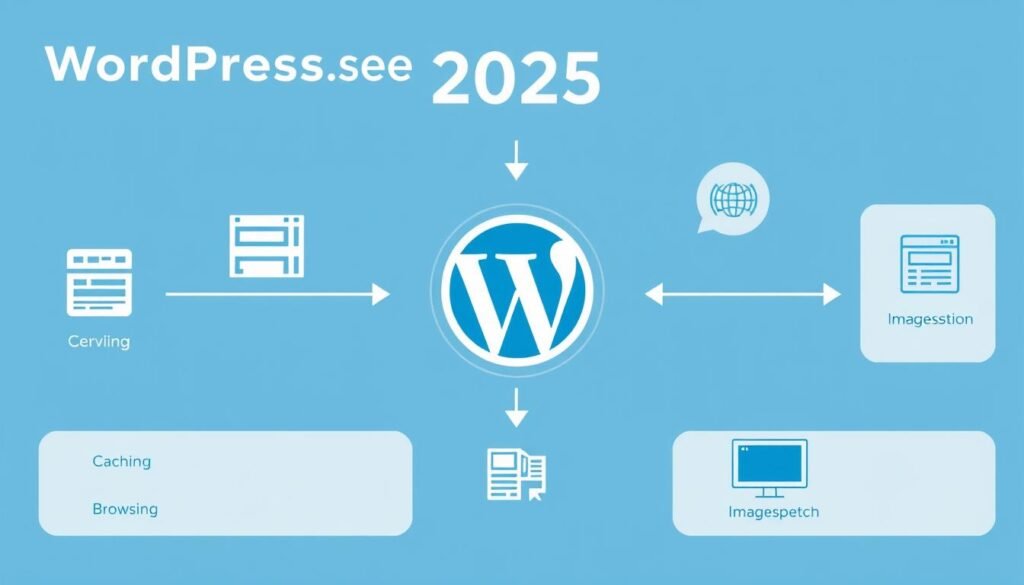
Advanced Caching Strategies
Caching creates static versions of your dynamic WordPress content, dramatically reducing server load and page generation times. In 2025, multi-layered caching is essential for optimal performance.
Server-Level Caching
Object caching stores database query results, reducing the need to repeatedly process the same queries. Redis and Memcached are now the gold standards for object caching, offering up to 5x faster database performance compared to traditional methods.
Page Caching
Full-page caching stores complete HTML pages, eliminating PHP processing and database queries for returning visitors. WP Rocket and LiteSpeed Cache lead the pack in 2025 with their intelligent cache preloading and mobile-specific caching features.
Not Sure If Your Caching Is Properly Configured?
Our WordPress Speed & Security Audit Checklist includes a step-by-step caching configuration guide for optimal performance in 2025.
Content Delivery Network Integration
A Content Delivery Network (CDN) distributes your site’s static assets across global servers, delivering content from locations closest to your visitors. This reduces latency and improves loading times worldwide.
Cloudflare Integration
Cloudflare’s Enterprise-level features now include automatic image optimization, advanced bot protection, and HTTP/3 support. Their new Adaptive Edge network adjusts delivery based on visitor connection quality.
BunnyCDN Configuration
BunnyCDN has emerged as a cost-effective alternative with performance rivaling premium providers. Their Edge Storage system allows for regional file storage, further reducing global latency.
Image Optimization Techniques
Images typically account for 50-80% of a webpage’s total size. Implementing proper image optimization can cut your page weight in half without sacrificing visual quality.
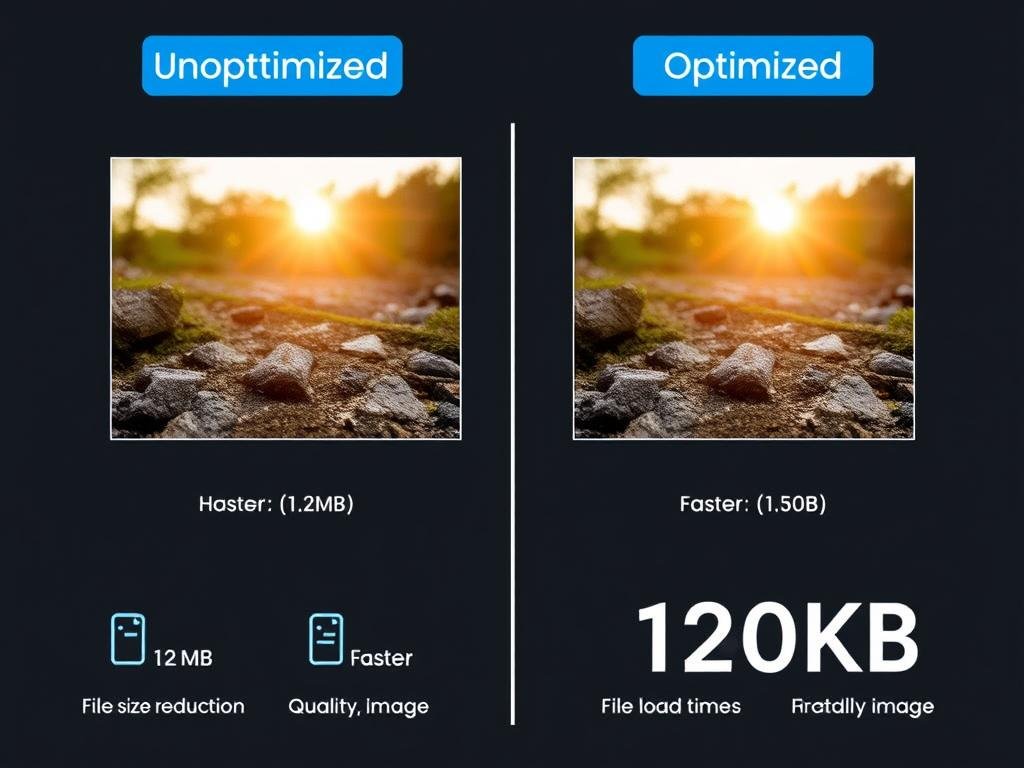
Hosting Upgrades: When to Make the Switch
Your hosting environment forms the foundation of your site’s performance. In 2025, the hosting landscape has evolved significantly with specialized WordPress solutions.
| Hosting Type | Best For | Speed Impact | Monthly Cost | When to Upgrade |
| Shared Hosting | Small blogs, low traffic sites | Low to Moderate | $3-15 | When you exceed 10K monthly visitors |
| VPS Hosting | Growing sites, small businesses | Moderate to High | $20-80 | When you exceed 50K monthly visitors |
| Managed WordPress | Business sites, online stores | High | $30-200 | When speed is critical to conversions |
| Cloud Hosting | High-traffic sites, variable loads | Very High | $40-400+ | When traffic spikes cause slowdowns |
For a detailed comparison of WordPress hosting providers, check out our WordPress hosting comparisons guide.
WordPress Security Essentials for 2025
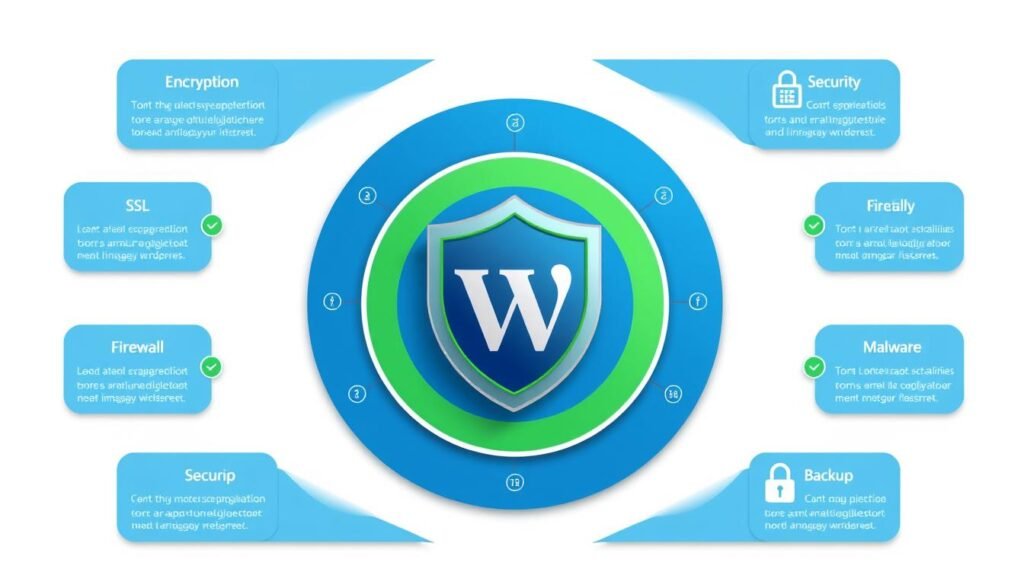
SSL Certificate Implementation
SSL certificates are no longer optional—they’re essential for both security and SEO. Google now actively penalizes non-HTTPS sites in search rankings.
Free vs. Paid Certificates
Let’s Encrypt offers free SSL certificates that are now accepted by all major browsers. For most WordPress sites, these provide sufficient security. However, e-commerce sites or those handling sensitive information should consider Extended Validation (EV) certificates that offer stronger identity verification.
Auto-Renewal Tips
Certificate expiration can cause security warnings that drive visitors away. Set up auto-renewal through your hosting provider or implement a monitoring system that alerts you 30 days before expiration. Many managed WordPress hosts now handle this automatically.
Firewall Protection: Wordfence vs. Sucuri
Wordfence Advantages
- More comprehensive free version
- Real-time firewall rule updates
- Integrated malware scanner
- Live traffic monitoring
- Better for DIY site owners
Sucuri Advantages
- Cloud-based WAF (less server load)
- DDoS protection included
- Post-hack cleanup services
- CDN integration
- Better for business sites
Pro Tip: In 2025, the most effective security approach combines a WordPress security plugin with server-level protections. This multi-layered strategy catches threats that might slip through a single security system.
Login Protection Strategies
The WordPress login page is the most frequently attacked entry point. Implementing robust login protection is essential for preventing unauthorized access.
Need Expert Security Implementation?
Our professional WordPress security audit identifies vulnerabilities and implements hardened protection tailored to your specific site.
Recommended Plugins & Configurations for 2025
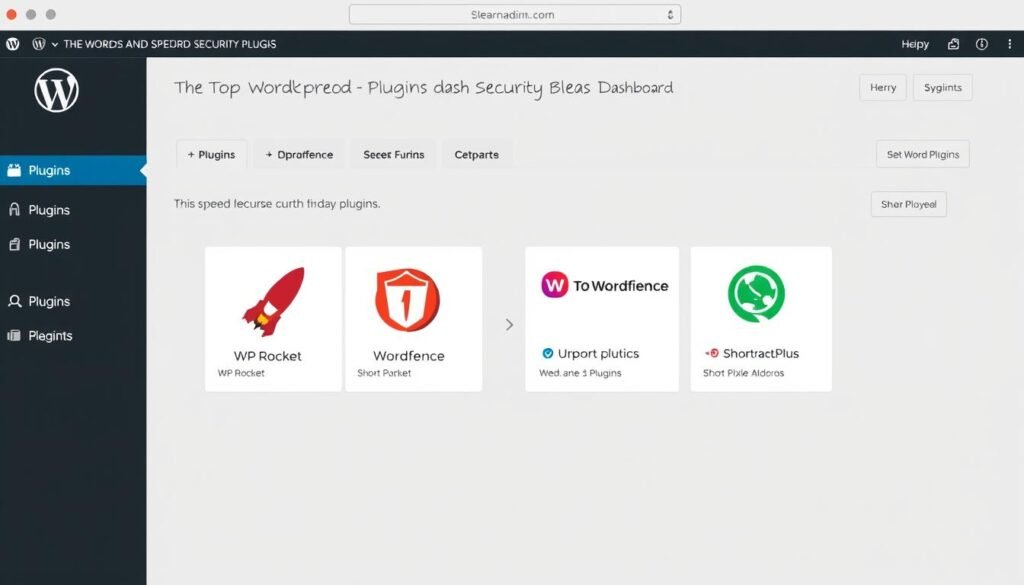
Speed Optimization Plugins
The right combination of performance plugins can dramatically improve your site speed without requiring developer-level expertise.
WP Rocket
The premium caching solution that consistently outperforms free alternatives. Its 2025 version includes AI-powered preloading that anticipates user behavior.
ShortPixel
The leading image optimization plugin now offers unlimited image processing with advanced AI compression that maintains visual quality while reducing file size by up to 80%.
Perfmatters
A lightweight plugin focused on disabling unnecessary WordPress features. The 2025 version includes script delay optimization and font delivery improvements.
Security Plugins & Configurations
A properly configured security plugin is your first line of defense against the increasingly sophisticated attacks targeting WordPress sites in 2025.
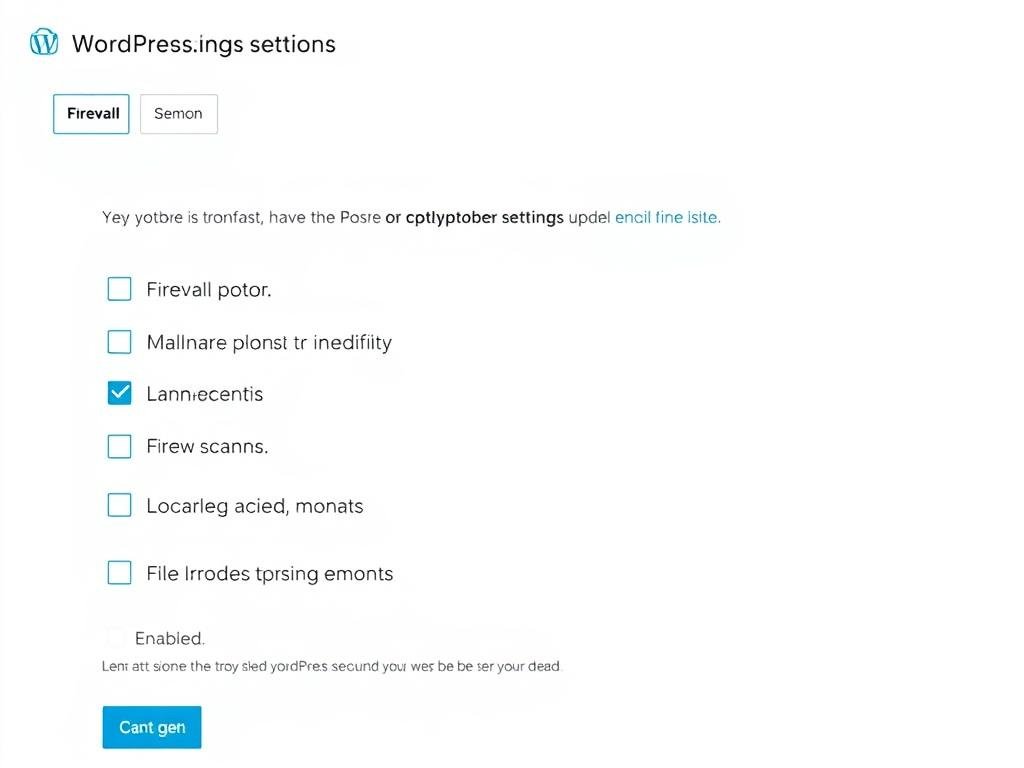
Critical Security Settings
Warning: Security plugins can sometimes conflict with caching and performance plugins. Always test your site thoroughly after implementing new security measures to ensure they don’t negatively impact performance.
Backup & Recovery Systems
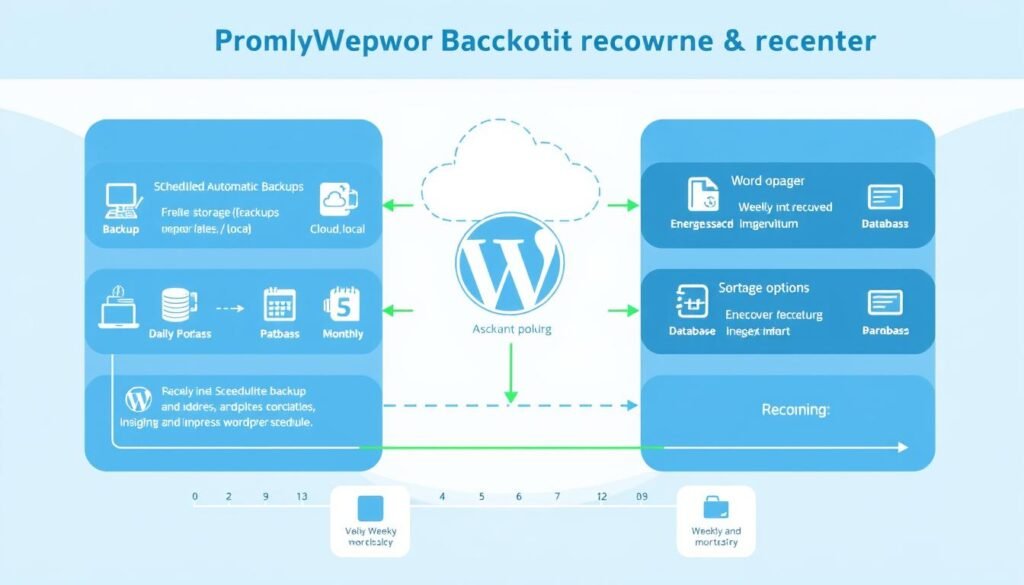
Automated Backup Solutions
Regular, automated backups are your safety net against both security breaches and technical failures. In 2025, comprehensive backup solutions go beyond simple file copying.
UpdraftPlus Premium
The most popular WordPress backup solution now offers incremental backups that only save changed files, reducing server load and storage requirements. Their multi-site management dashboard simplifies backup monitoring across multiple WordPress installations.
BlogVault
Specializing in large WordPress sites, BlogVault’s 2025 version includes real-time backups that capture changes as they happen rather than on a schedule. Their staged restoration feature lets you verify backups before fully implementing them.
For more detailed backup strategies, visit our comprehensive Backup & Recovery guide.
Testing Backup Restores
A backup is only as good as your ability to restore it. Regular restoration testing ensures your recovery system works when you need it most.
Is Your Backup System Reliable?
Our WordPress Speed & Security Audit Checklist includes a comprehensive backup verification process to ensure your site can be quickly restored in case of emergency.
Common WordPress Speed & Security Mistakes
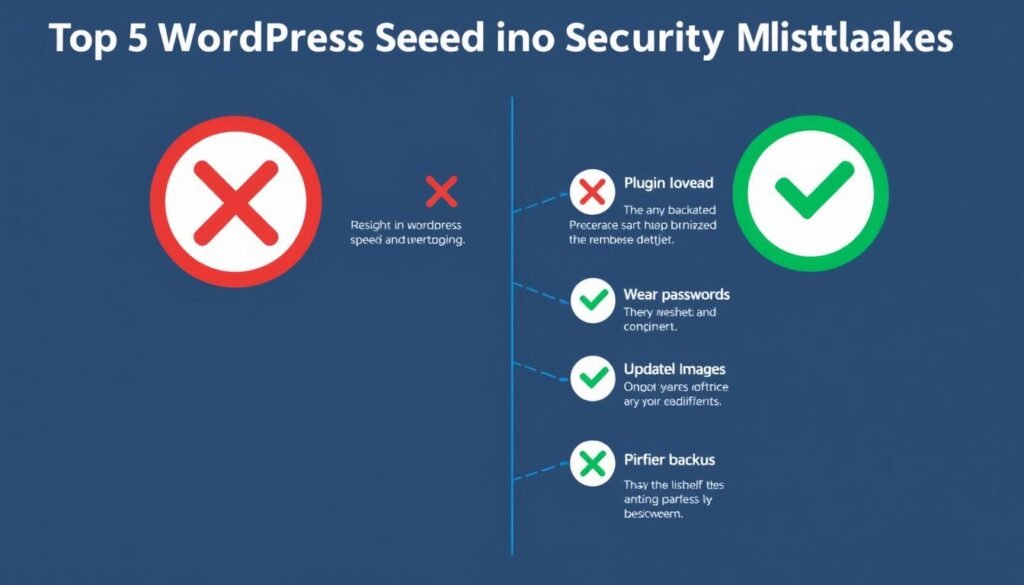
Performance Killers to Avoid
Even with the best optimization plugins, these common mistakes can sabotage your WordPress site’s performance.
Security Vulnerabilities to Address
These security oversights are commonly exploited by hackers targeting WordPress sites in 2025.
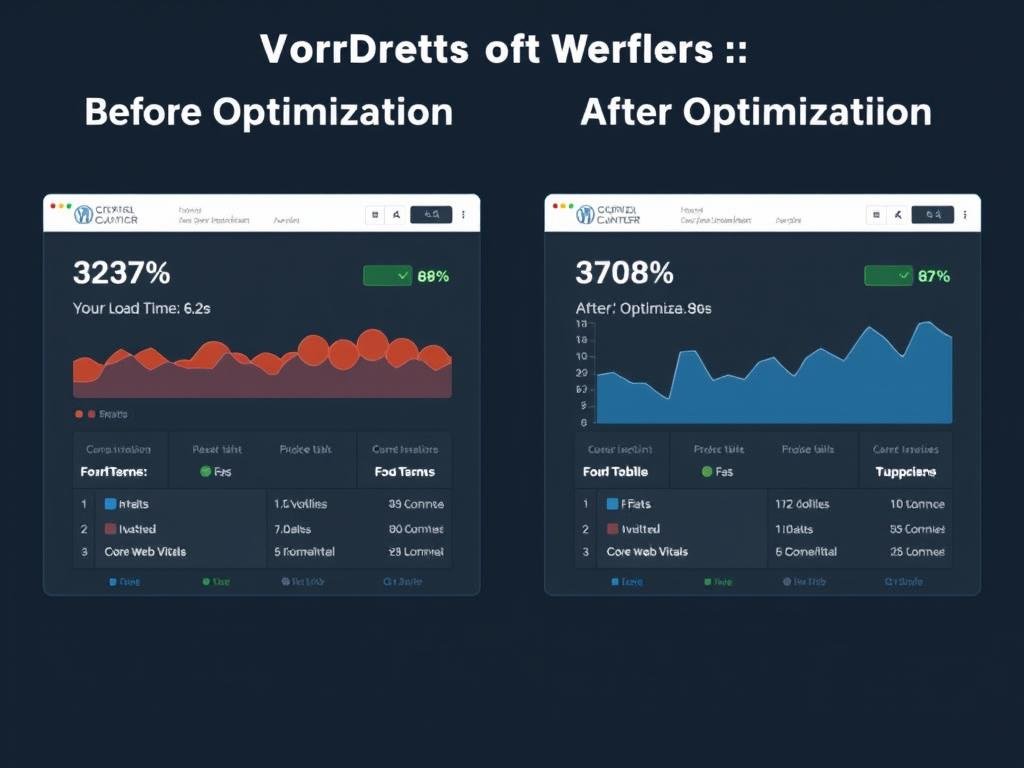
If you’re experiencing persistent issues despite implementing optimization techniques, check out our WordPress troubleshooting guide for advanced solutions.
Frequently Asked Questions
How often should I audit my WordPress site for speed and security issues?
For optimal performance and security, conduct a comprehensive audit quarterly and mini-audits monthly. Additionally, perform immediate audits after major WordPress core updates, significant plugin changes, or when Google releases new Core Web Vitals metrics. Sites with high traffic or those processing sensitive information should consider more frequent security audits.
Is free hosting safe for WordPress sites in 2025?
Free hosting is generally not recommended for business or professional WordPress sites in 2025. Free hosting providers typically offer limited security features, shared resources that impact performance, and often insert ads or promotional content. They also frequently have outdated PHP versions and limited backup options. For sites that handle any user data or generate revenue, investing in quality hosting is essential for both security and performance.
Can caching plugins break my WordPress site?
Yes, caching plugins can potentially cause issues if not properly configured, especially on dynamic sites with frequently changing content or complex functionality. Common problems include stale content being displayed, login/logout issues, and conflicts with e-commerce or membership features. Always test caching plugins thoroughly on a staging environment before implementing them on your live site, and be sure to configure page exclusions for dynamic content like checkout pages and user accounts.
What's the biggest performance factor for WordPress sites in 2025?
While many factors influence WordPress performance, hosting quality has emerged as the most significant factor in 2025. With the increased importance of Core Web Vitals in SEO rankings, server response time (Time to First Byte) has become critical. Premium hosting with server-level optimizations, HTTP/3 support, and built-in edge caching can improve performance by 40-60% compared to budget hosting, even before applying any other optimization techniques.
How do I balance security plugins with site performance?
Security and performance plugins often compete for server resources. To balance them effectively: 1) Choose security plugins with minimal performance impact (cloud-based WAFs like Sucuri are often lighter than on-server solutions), 2) Disable redundant features when using multiple security tools, 3) Implement server-level security where possible instead of plugin-based solutions, and 4) Use staging environments to test the performance impact of security configurations before applying them to your live site.
Conclusion: Taking Action on WordPress Speed & Security
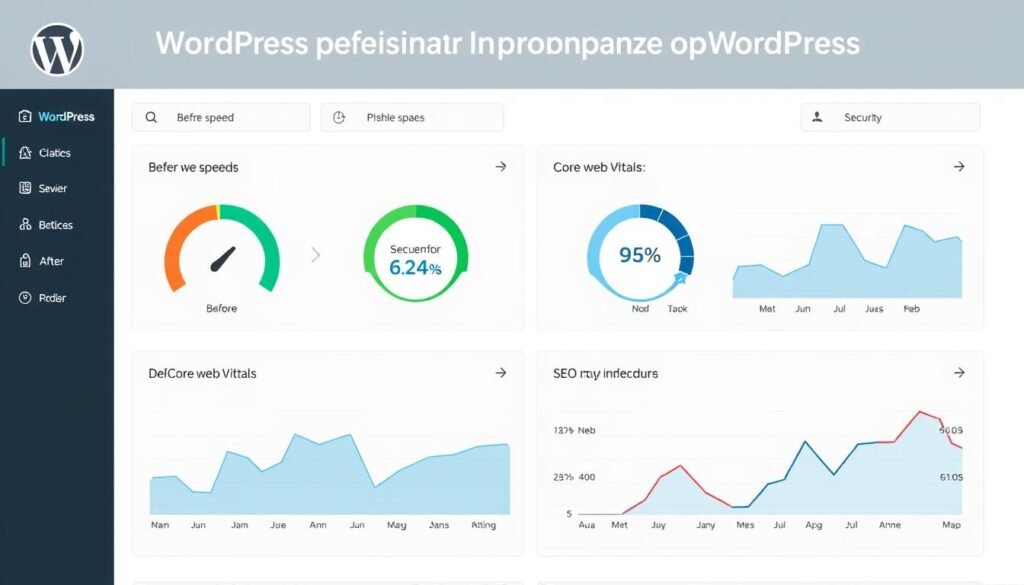
In 2025, WordPress speed and security optimization isn’t just a technical consideration—it’s a business imperative. Sites that load quickly and maintain robust security measures enjoy better search rankings, higher user engagement, and improved conversion rates.
The techniques outlined in this guide represent the current best practices for WordPress optimization, but the landscape continues to evolve rapidly. Regular audits, testing, and staying informed about emerging threats and optimization methods are essential for maintaining peak performance and security.
Don’t risk losing traffic, customers, or valuable data due to a slow or vulnerable WordPress site. Take action today to implement these optimization strategies and secure your online presence for the future.
Download Our Free 2025 WordPress Speed & Security Audit Checklist
Get our comprehensive, step-by-step checklist for optimizing and securing your WordPress site. This actionable resource includes all the techniques covered in this guide plus additional advanced strategies.
Need Professional Help? Schedule a Site Audit Today
Our WordPress speed and security experts will perform a comprehensive audit of your site, identifying performance bottlenecks and security vulnerabilities. You’ll receive a detailed report with actionable recommendations tailored to your specific site.


